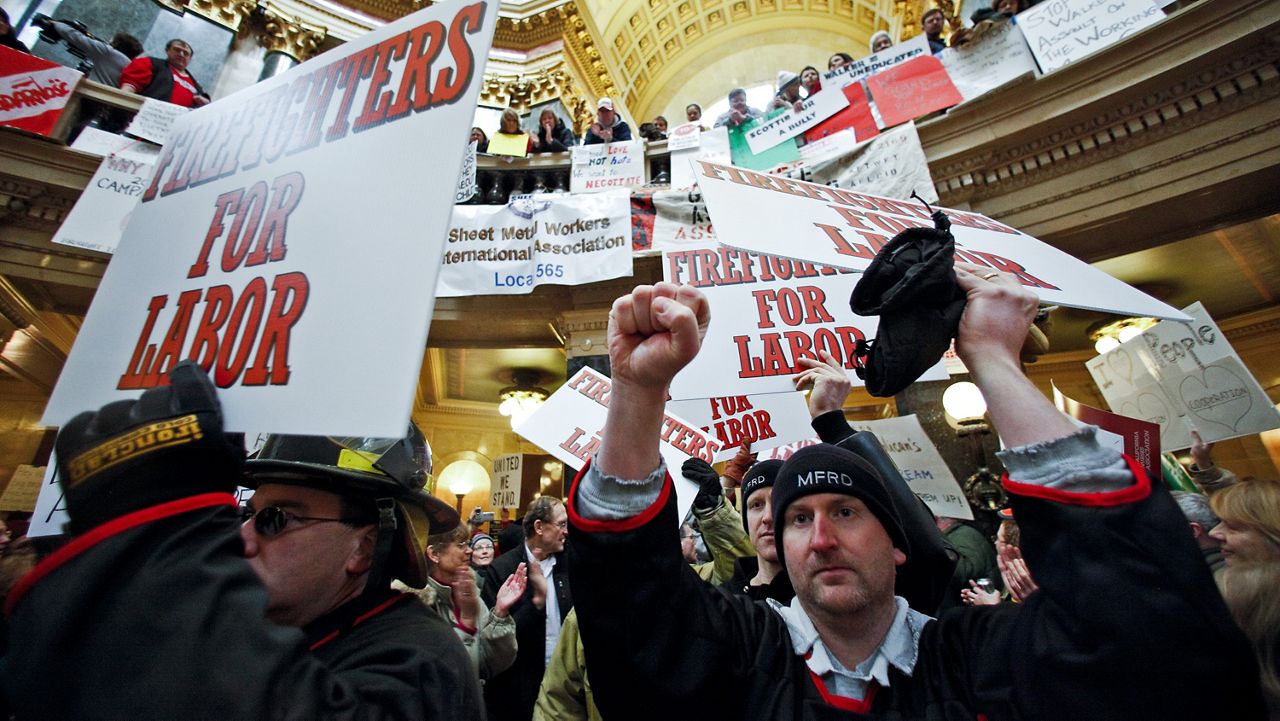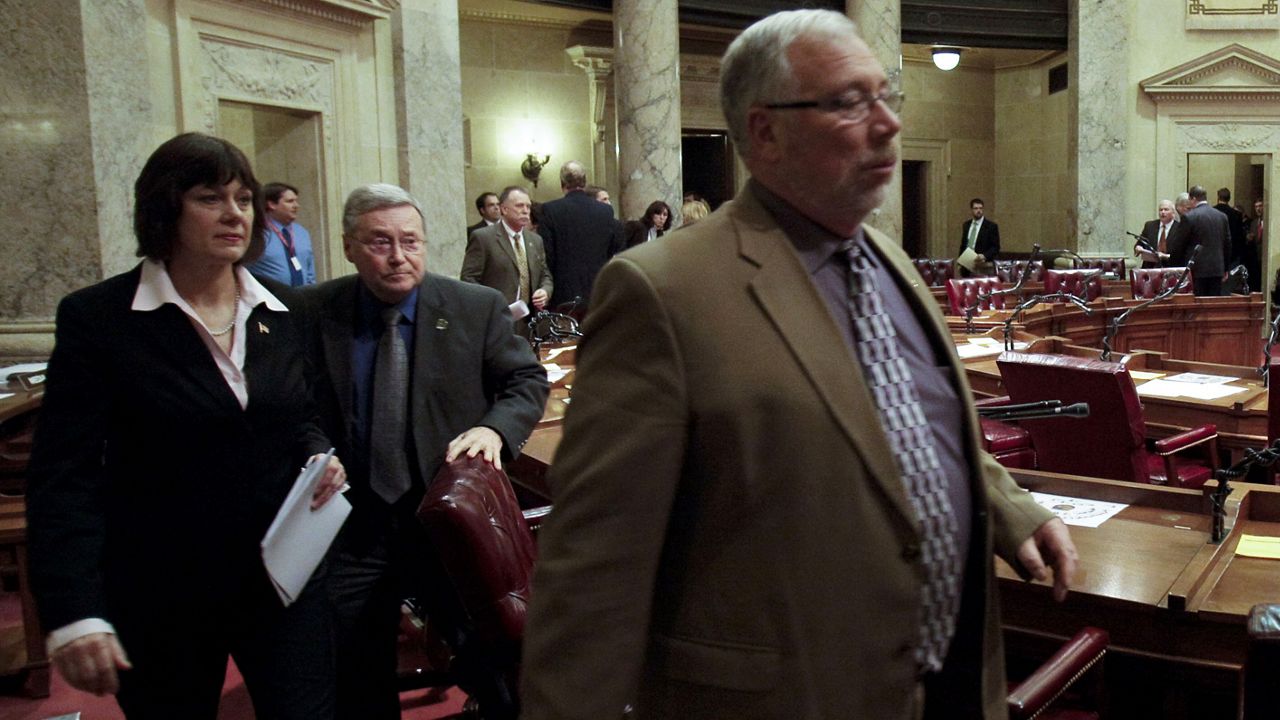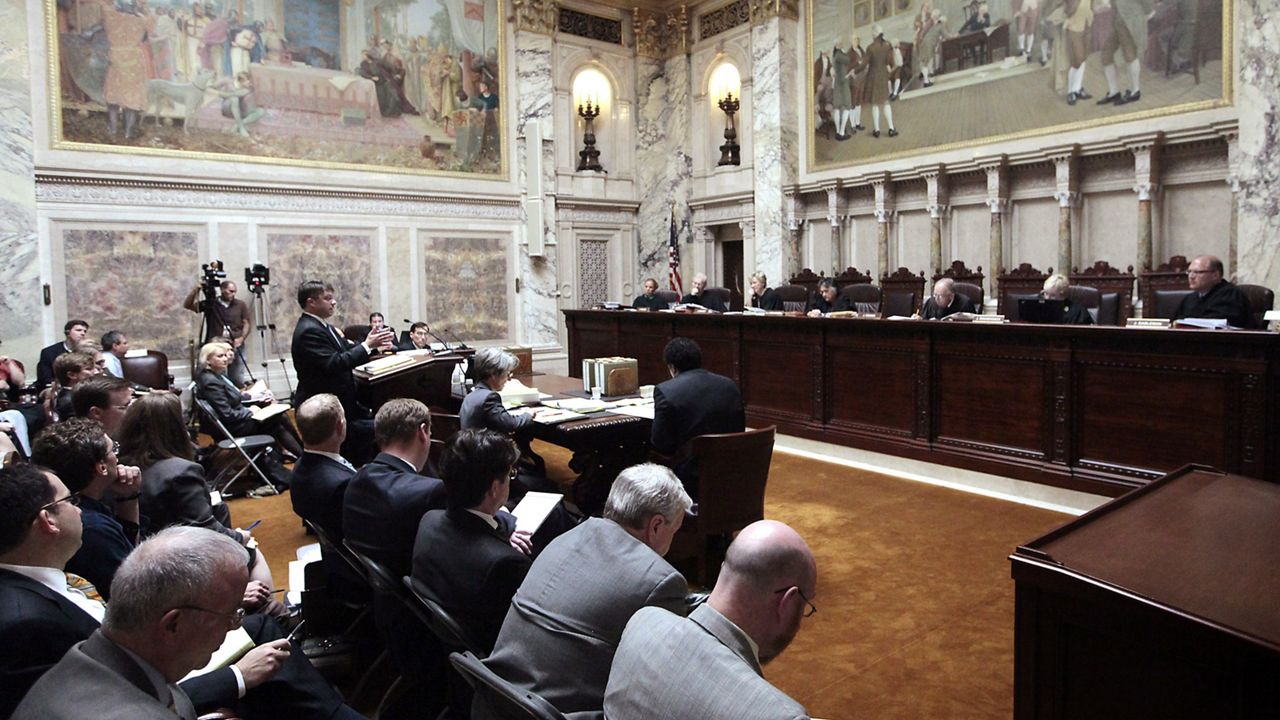MADISON, Wis. — Ten years have passed since Act 10 took effect, which required public employees to pay more for their pensions and health care and limited their ability to collectively bargain. The legislation signed by former Gov. Scott Walker to address a projected $3.6 billion budget deficit changed Wisconsin’s financial and political future.
Former Gov. Scott Walker's landmark legislation required public employees to pay more for their pensions and health care and limited their ability to collectively bargain.
Unions and several other organizations quickly organized protests in and around the Capitol in Madison that would last for weeks.
While firefighters and police officers were exempt from the changes to collective bargaining, many still joined the protesters, a lot of whom were public school teachers.

When you think of Act 10, chances are you remember the thousands of protesters occupying the state Capitol in February and March of 2011.
However, the law they opposed did not go into effect until June 29, 2011.
Though Gov. Walker signed the legislation into law in March 2011, that wasn't the end of Act 10. In the months and even years that followed, opponents of the policy mounted several recall efforts and legal challenges.

The effort to recall Gov. Walker began almost immediately, but in 2012 Walker ultimately defeated Democratic Milwaukee Mayor Tom Barrett in what turned out to be a rematch of the gubernatorial election from 2010.
Democrats also fell short in their effort to regain control of the State Senate. Republicans won four of six recall races. Though State Senators Dan Kapanke and Randy Hopper were recalled, Senators Robert Cowles, Alberta Darling, Sheila Harsdorf, and Luther Olsen all held onto their seats.

Democrats weren't the only ones trying to unseat lawmakers over Act 10 though, some even became targets themselves.
Of the 14 Democrats who fled the state, Senators Bob Wirch, Jim Holperin, and Dave Hansen all faced recall efforts but went on to survive them.

There were also numerous legal challenges to Act 10, which went on for years.
It wasn't until 2014 that Act 10 became settled law in Wisconsin when on July 31, the Wisconsin Supreme Court upheld the policy in a 5-2 decision which marked the end of the state's legal fight over the collective bargaining law.



